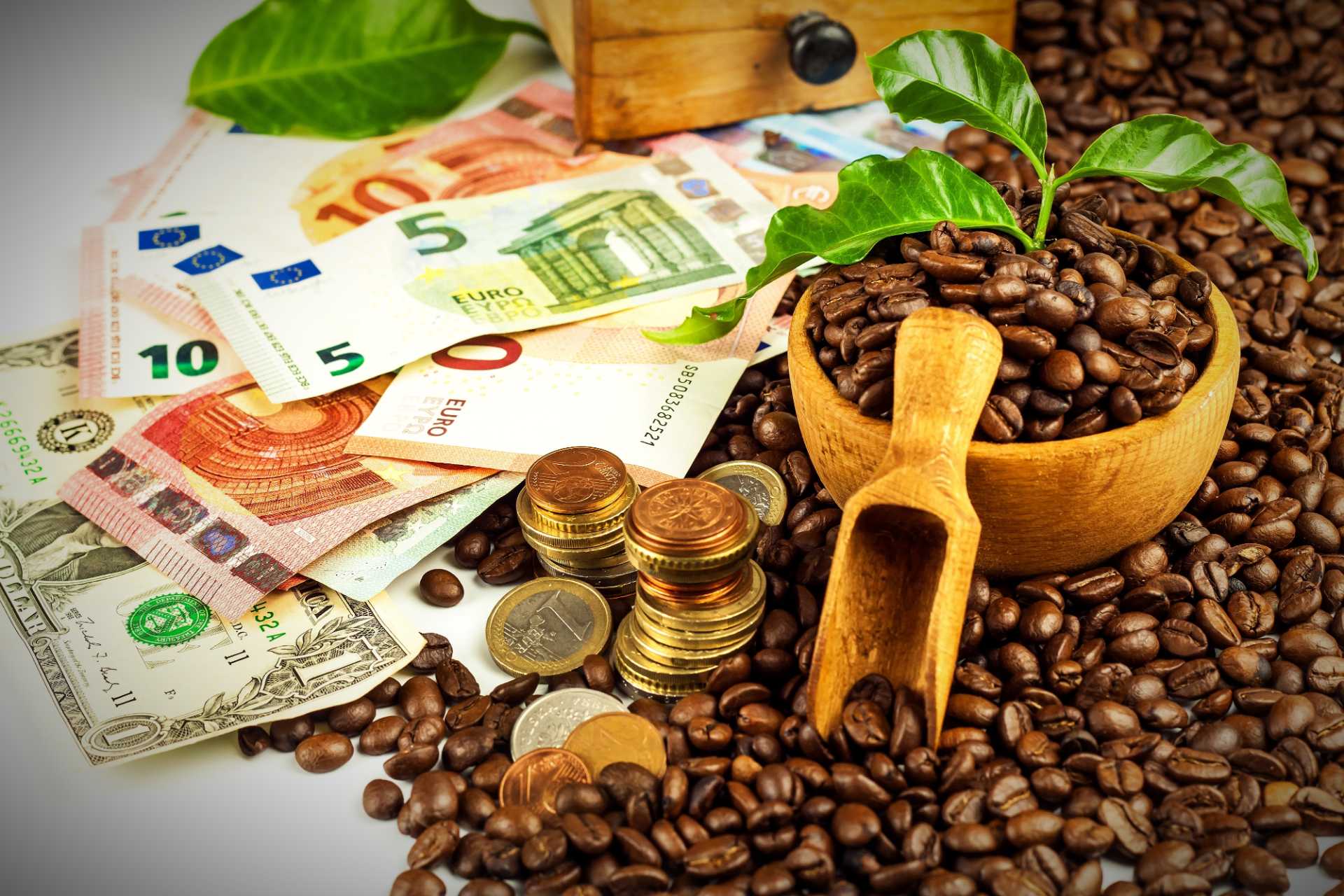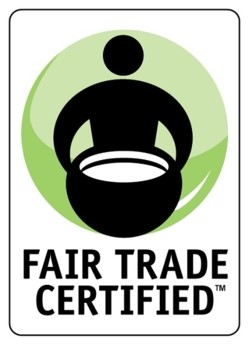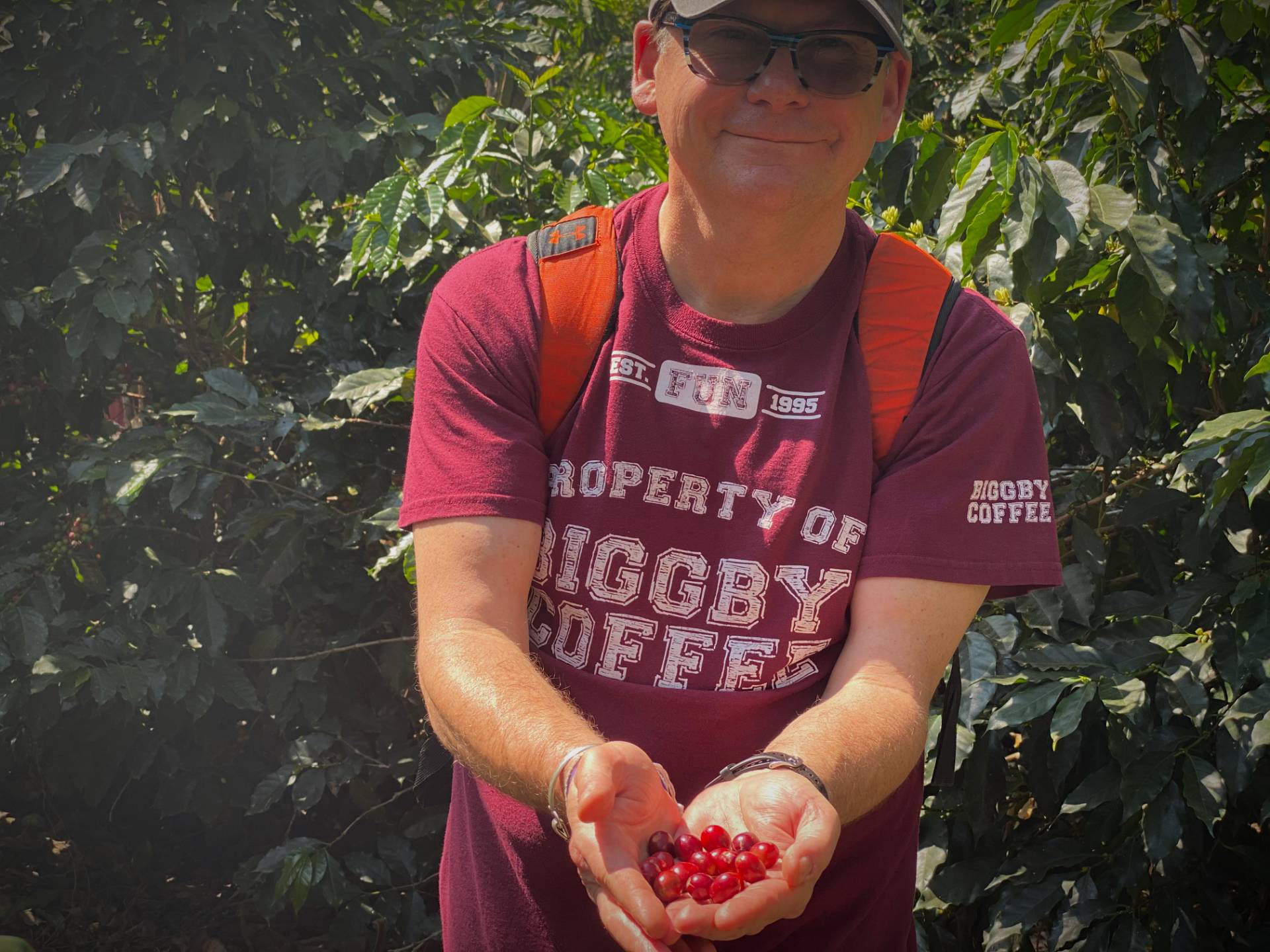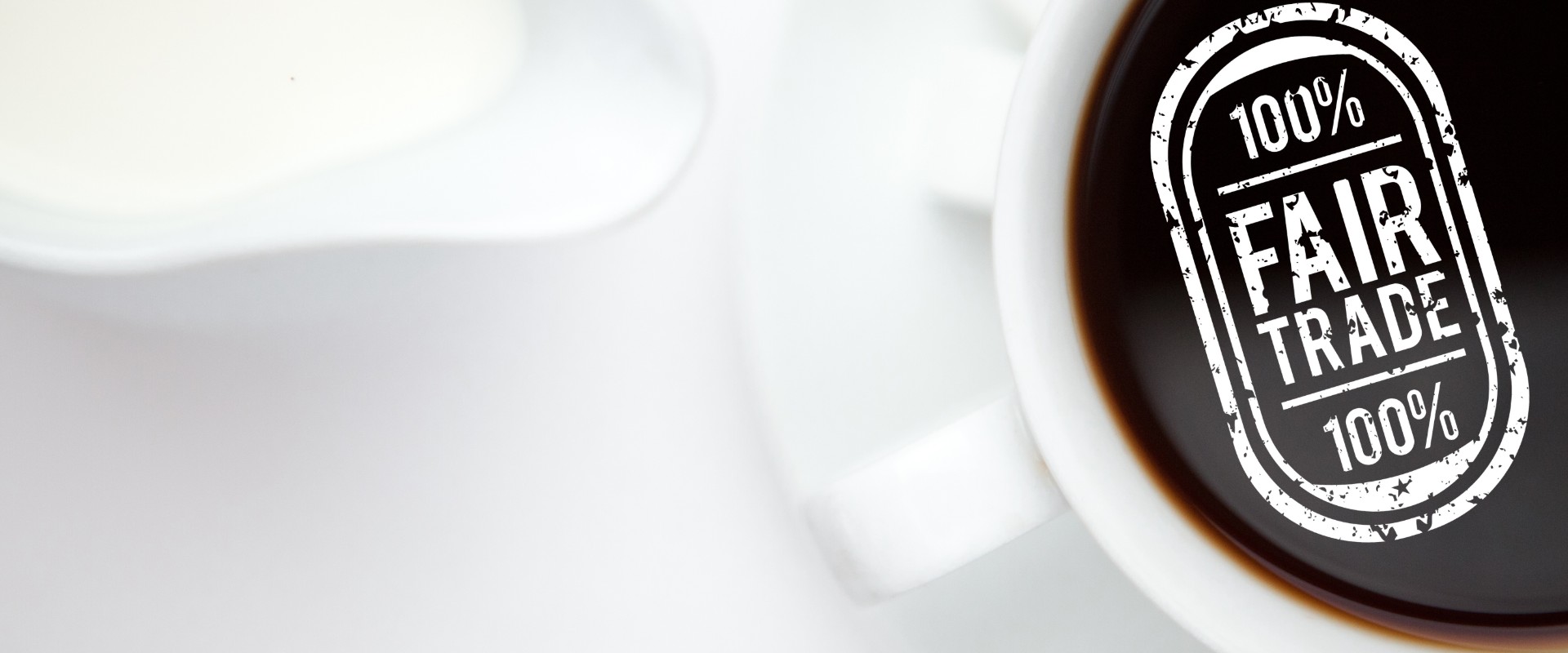By Bob Fish
There’s a growing movement among US consumers towards ethical consumption. Think of the slogans we’ve all become familiar with over the last many years for products advertising ethical attributes running the gamut from “free range” eggs to “conflict free” diamonds. Given the choice, more and more consumers are spending their dollars on goods that do good in the world, or at least do no harm. And because so few of us have either the time or the skill set to track down the provenance of an individual purchase, we rely on third-party endorsement.
In the coffee world, the third-party endorsement with which most of us are familiar is the Fair-Trade label. It conjures the impression that the coffee with that label on the bag was grown, harvested and processed in a way that did not exploit the worker or the farmer. And perhaps, even, that it supports some greater social good for the community.
But what does it mean, and is it true?

The Origins of Fair-Trade
The idea of ‘Fair-Trade’ emerged after World War II as a consensus among business, religious and non-governmental agencies in Europe that the way we source commodities can have a positive impact on world poverty. The idea gained traction in the 60’s and 70’s with multiple organizations pursuing the goal. Eventually there was consolidation in the 80’s, with a Fair-Trade label being created in 1988. That is the organization that we recognize today as Fair-Trade International.
Fair-Trade USA was started in 1998 and although it was a member of Fair-Trade International, that relationship ended in 2011. The Fair-Trade USA label is the one that we see on bags of coffee in grocery stores here in the United States.
“Seek the seal, and make a difference”, a quote taken straight from the Fair-Trade USA website, suggests that if you buy the Fair-Trade label, you as a consumer will have an impact. But do you?

Expectation vs. Reality
The Fair-Trade consumer is a conscious consumer, willing to pay a premium for their coffee, and expecting that premium to go directly to the farmer to create a positive economic and social impact. That does not always seem to be the case.
The main issues that regularly surface about Fair-Trade USA are:
- They fail to address the root of poverty issues.
- Purported benefits of the Fair-Trade system lack transparency.
- Little of Fair-Trade coffee originates from the poorest countries.
- Fair-Trade imposes significant costs on impoverished growers. Like most third party-marketing organizations (think USDA Organic, for example), it is very expensive for a farmer to be able to license the Fair-Trade seal on their coffee. In a business where profit margins for farmers are thread-bare to begin with, many smaller farmers simply cannot afford it.
- Fair-Trade attracts bad beans. This may seem counter-intuitive, but the organization is not about quality, it’s about price. And when they promise a farmer a set price for their crop, the farmer is incentivized to give them their worst quality beans, so that they fetch a higher price for the best beans.
- Fails to help a farmer individually.
Don’t misunderstand, the Fair-Trade label has introduced the American consumer to considerations about coffee farming such as poverty, workers pay, working conditions, sustainable agricultural practices, and community investment that they never really considered important prior the ‘label’ being created. But it doesn’t fully deliver on its promise. We are committed to finding a better way.

BIGGBY Coffee and Farm Direct
BIGGBY COFFEE still uses Fair-Trade coffee, but we are also on a new mission to have 50% of our coffee be Farm-Direct by 2023. This mission looks to fill the gaps that a simple Fair-Trade label model might miss. We look to answer three broad questions:
- Is the farm paying its workers above the national average?
- Is the farm employing sustainable and organic farming practices?
- Does the farmer have a strong and local social mission that they are actively engaged with?
To do that, my wife Michelle and I are ‘boots on ground’ with a visit to every farm to verify that they are doing what they say they’re doing. When we get there, we stay and live on the farm, get to know the farmer, the workers, the land, and the community at large. These visits are full immersion events. While we generally feel safe with our host farmer, the journey there is often not without risk. We have had incredible moments of connection as well some as pretty hair-raising adventures.
The goals of our Farm-Direct mission for the BIGGBY COFFEE consumer (BIGGBY Fanatics), the Baristas that serve them, and the Owner/Operator Fanchisees are as follows:
- To bring them a specific name, face, and a place for every one of our great tasting coffees.
- To have them feel assured that the coffee that they are drinking and serving is produced in a sustainable way on a human, environmental, and social level.
- That the farmer will get a premium for their product to keep all those sustainability efforts alive and still earn a reasonable profit.
Because we eliminate the brokers and the other middlemen and make our financial and import arrangements directly with the farmer, only a portion of that premium will be passed along to the consumer. And that premium won’t be squandered on an arbitrary third-party agency like Fair Trade USA. So, more revenue will go to the farmer. And it’s not just any farmer… it’s one we know, love, and cherish.
Our goal is to be 50% Farm-Direct by 2023, after which we will reach for 100%.


